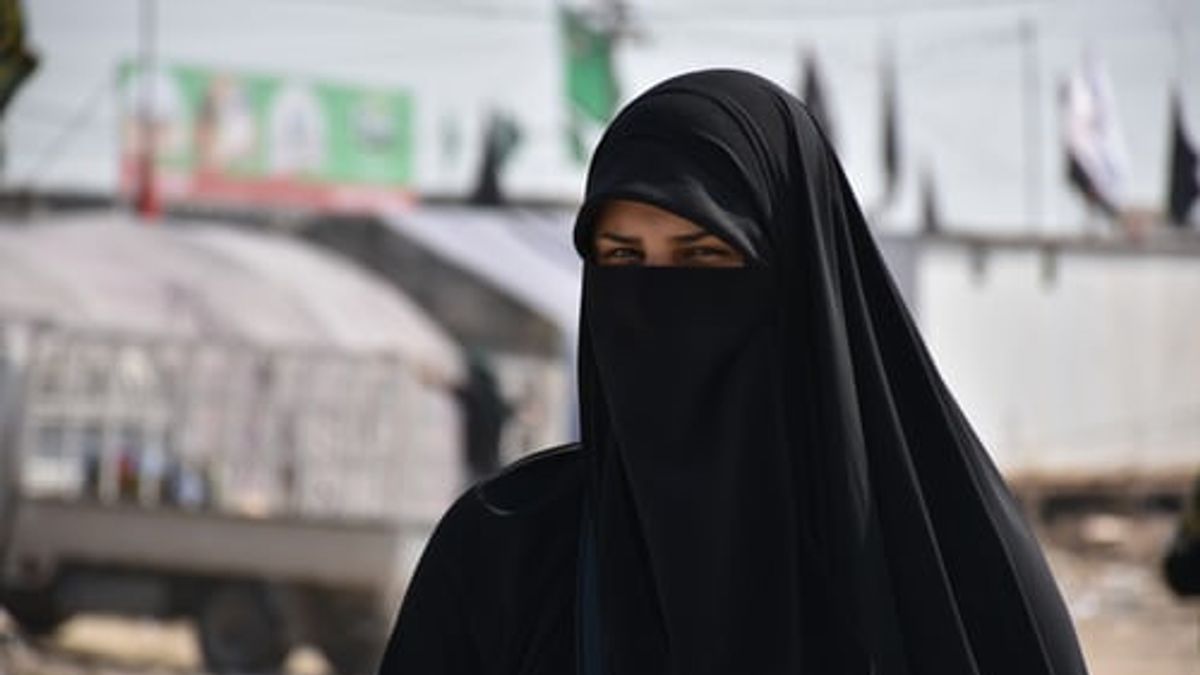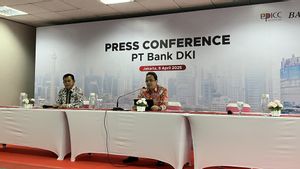JAKARTA, (VOI.id) - The Minister of Religion, Fachrul Razi, is discussing the prohibition of the use of the veil for state civil servants (ASN) in government offices for security reasons. This veil is usually worn by Muslim women.
According to him, this policy is the same as the prohibition of wearing helmets in government offices for the purpose of recognizing guests. That way, unwanted actions can be avoided.
"Correct, from a security point of view, if someone visits me they don't show their face, I don't want to. You leave," Fachrul told reporters after a ministerial coordination meeting at the Coordinating Ministry for PMK, Jalan Merdeka Barat, Central Jakarta, Thursday, October 31.
If it is said that this prohibition is against religious rules, Fachrul ensures that this does not happen. This is because, he said, there are no recommendations in the Koran and hadiths regarding the use of the veil. Moreover, the veil is not a measure of one's piety.
In addition to the veil, Fachrul also prohibited ASN from wearing pants above the ankles or what are commonly called cingkrang pants. The reason is, pants like this do not comply with the uniform regulations within government agencies.
"The problem of short pants, it cannot be prohibited from the religious aspect because religion does not prohibit. But from the employee rules, you can. For example, you can be reprimanded, 'How come your pants are so high? How do you not see the state's regulations?
Fahcrul
Minister of Administrative Reform and Bureaucratic Reform (MenPAN-RB) Tjahjo Kumolo has invited the Ministry of Religion to enforce this rule. This is because each ministry has its own internal regulations. However, this policy needs to be studied more deeply when it is implemented.
"We're just waiting because each agency has the authority to regulate according to the existing Indonesians," said Tjahjo.

Muhammadiyah Secretary General Abdul Mu'ti said that this policy was not against Islamic religious regulations and human rights.
He explained that the policy must be seen from the point of view of efforts to foster ASN and efforts to build better social relations. Also, so that ASN complies with the applicable employee code of ethics.
"This does not only apply to those who are veiled but also those who dress immodestly that are not in accordance with the religious, moral and cultural norms of the Indonesian people," he said.
From a religious perspective, Abdul explained, most of the scholars were of the opinion that the veil was not obligatory. "Women can show their faces and palms," he said, adding that the understanding of people in the veil as terrorists and radicals be eliminated.
Got rejected
A number of elements reject this rule. Among them are religious-based parties, namely PKB and PKS. According to them, there is no relationship between a person's style of dress and their actions, including radical movement activities that lead to terrorism.
"Instead of taking care of what appears, the Minister of Religion should just take care of the substantial ones," said PKB DPP Chairman Yaqut Cholil Qoumas, adding that radicalism and terrorism are not a matter of what is used, but a matter of ideology. Therefore he asked the Minister of Religion to study the correlation between the veil and acts of terrorism.
The deputy chairman of Commission II of the DPR RI added that so far many women in the veil have more moderate thoughts and are far from radicalism. He added, the veil or niqab is part of Arabic culture that has blended with culture in Indonesia.
"If it is ideologically related, then issue the regulation. So, if it is not related, what? Because many people who wear the veil are also in a moderate way of thinking, not radical," said Gus Yaqut, his nickname.
His argument was not against the Minister of Religion's discourse, but he wanted Fahcrul to learn more about radical ideology and terrorism before issuing a ban on the use of the niqab in government agencies.
Furthermore, the Chairman of the DPP PKS Mardani Ali Sera also disagrees with Fachrul's discourse that has entered the realm of one's privacy, because it prohibits someone from wearing clothes. This is because, he said, the state has no business regulating one's dress style.
"That is the private space, if the private space is the most comfortable, don't get too intervened by the state. Because the state somehow regulates in the public sphere," said Mardani who also suggested that the Ministry of Religion build dialogue and literacy to fight radicalism rather than interfere in the private affairs of its citizens who are not necessarily proven to have a radical understanding.
"I underline that the best way to fight radicalism is through dialogue and literacy with law enforcement. Not to widen and widen the front."
Mardani

Deputy Director of Imparsial Gufron Mabruri said that the policy plan of the Minister of Religion needs to be reviewed on the grounds of respecting freedom of religion and belief. "Because there is no correlation between the way he dresses and the way he works," said Gufron when contacted by telephone.
"I think there is no need to make an explicit prohibition. Because it violates freedom of religion and belief," he added.
Furthermore, Gufron asked that the stigma of wearing veils and pants as terrorists and supporters of the caliphate be eliminated. He was afraid that this stigma would endanger the future like the stigma of communism in Indonesia decades ago.
"Apart from differences in attitudes, a person's belief is something that must be respected by the state and the government. So in my opinion, this policy is unnecessary because there is no correlation between clothes and performance," he concluded.
The English, Chinese, Japanese, Arabic, and French versions are automatically generated by the AI. So there may still be inaccuracies in translating, please always see Indonesian as our main language. (system supported by DigitalSiber.id)








